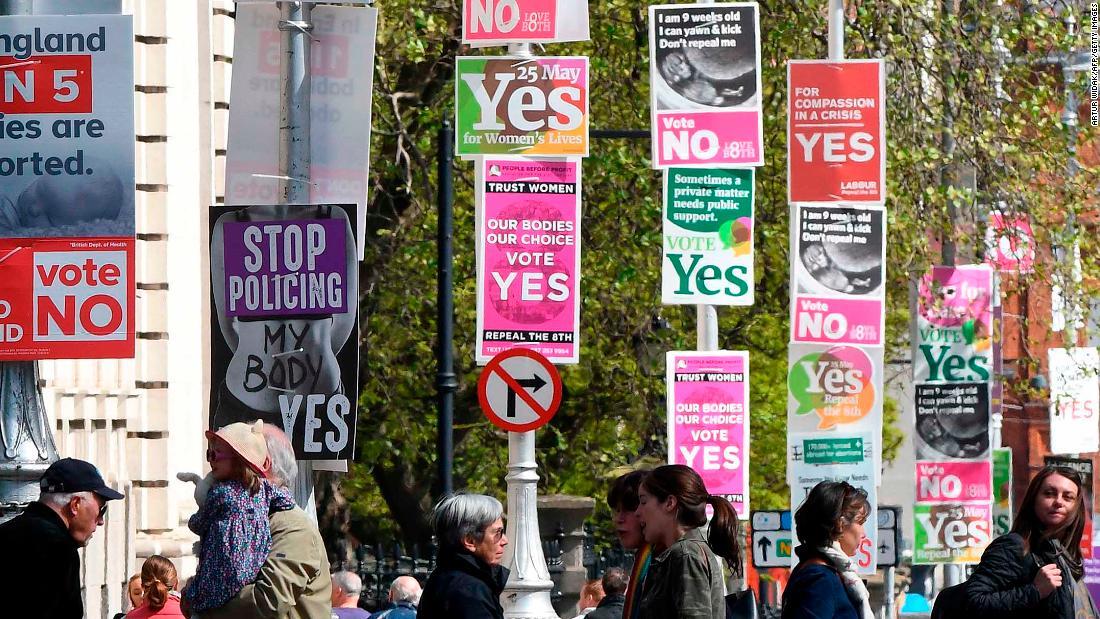DUBLIN, May 26 (Xinhua) -- A total of 66.4 percent of voters voted to scrap the present anti-abortion laws in Ireland in a Friday referendum, according to the final results announced by a returning officer here on Saturday evening.
A total of 33.6 percent of voters chose to retain the present abortion laws, or widely known as the Eighth Amendment among locals, that virtually ban abortions in the country, said the returning officer Barry Ryan.
Ryan declared the above results of the referendum in front of a large cheering crowd of people gathering at a central count center at Dublin Castle, a main government complex in the Irish capital of Dublin.
According to Ryan, nearly 3.37 million voters were registered for the referendum and 64.1 percent of them turned out in Friday's voting with some 6,000 votes declared invalid.
The turnout of the referendum was one of the highest in any referendums ever held in Ireland and this indicated how important the abortion issue meant for the Irish people, said local media quoting experts.
The referendum received an overwhelming victory in almost all the 40 constituencies across the country except in Donegal, a constituency in the country's northwest, with 51.9 percent of voters voting against repealing the Eighth Amendment.
Dublin ranked in the first place in terms of Yes vote for ending the constitutional ban in the country with a Yes vote of 75.5 percent, followed by the eastern region of Leinster (66.6 percent), the southwest region of Munster (63.3 percent), and the midwest and northwest regions of Connacht and Ulster (57.5 percent), according to the official results of the referendum.
A breakdown of the voting results indicated that the more developed a region, the higher it has the Yes vote.
Irish Prime Minister Leo Varadkar earlier told local media while visiting his constituency in Dublin West on Saturday afternoon that Friday's referendum marked a culmination of "a quite revolution" which has taken place in the country over the last few decades.
In 1983, Ireland held a referendum in which majority voters voted for a constitutional ban on abortions, which was subsequently written into the country's constitution as the Eighth Amendment. The Eighth Amendment stresses equal importance of right to life for the unborn child and its mother and does not permit abortions unless the life of the mother is endanger or the foetus is facing abnormalities in development.
Due to the strict abortion laws in Ireland, many pregnant women, especially those who got pregnant because of rape, incest and foetal abnormalities, either had to travel to Britain for terminations of pregnancy or secretly took abortion pills sought illegally without proper counselling or medical care.
Official statistics released by the Irish government say that each year over 3,000 Irish women have to take a flight or a boat to travel abroad for abortions and an estimated over 100,000 Irish women have received abortions overseas since 1980s.
Mary Lou McDonald, the female leader of the Ireland's third largest party Sinn Fein said that "We have without doubt done right by Irish women for this generation and many to come."
Mary Lou's view was also echoed by the country's second largest party Fianna Fail leader Micheal Martin who said that the Irish people had made the right decision and it would mean better care for women in Irish hospitals.
